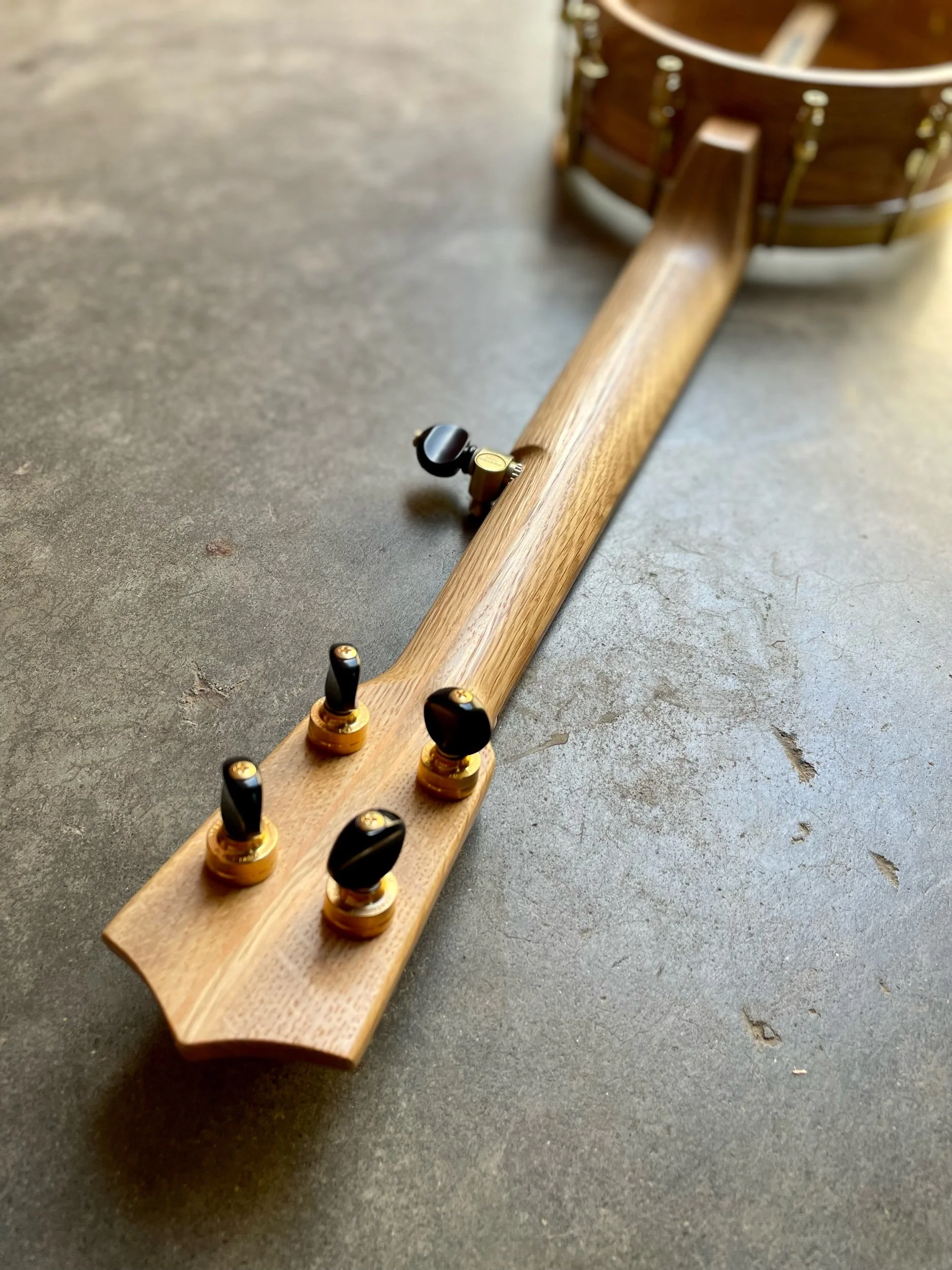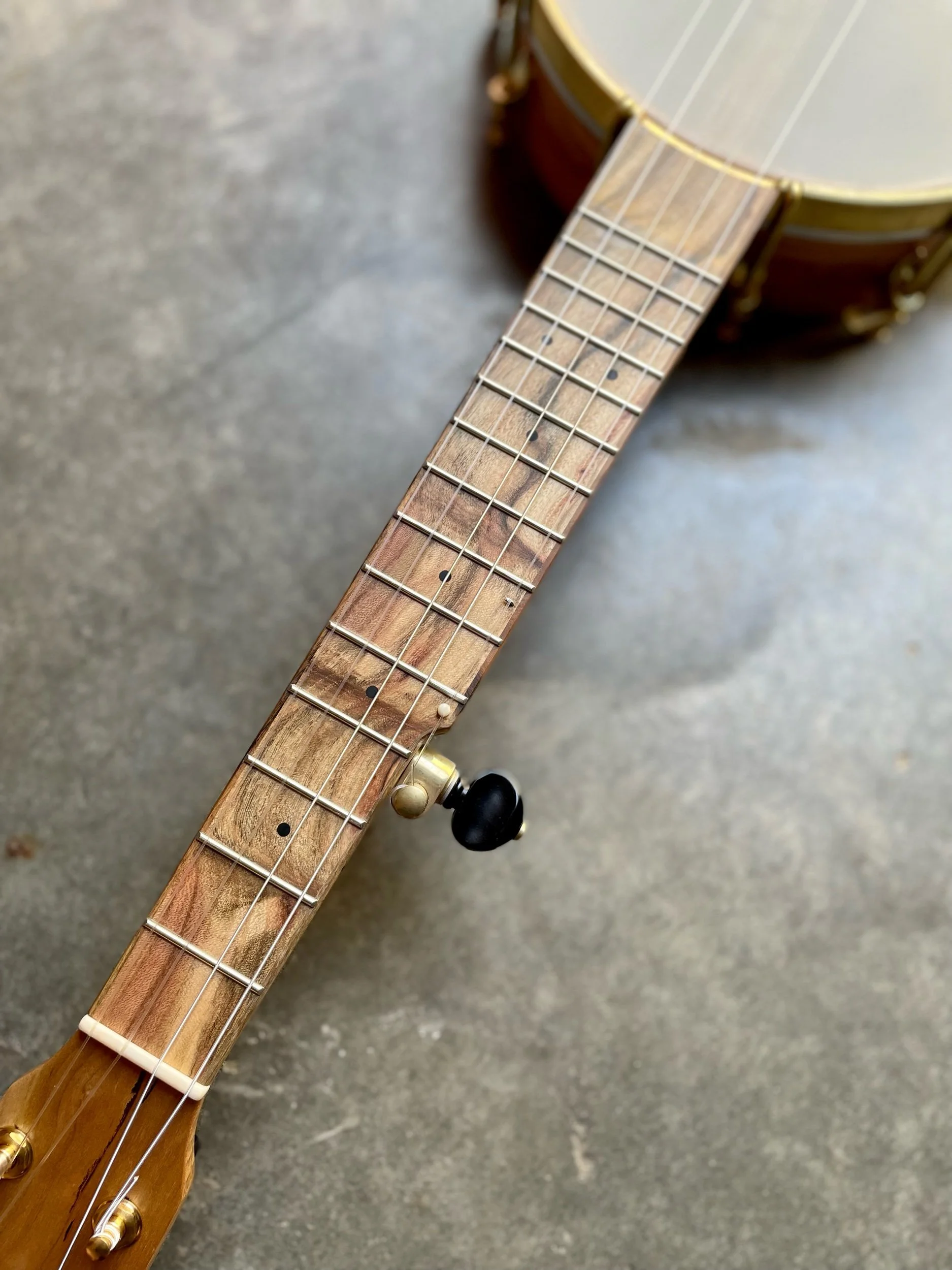For banjos, I usually stick to two kinds of wood on a build, but lately some customer requests have pushed me to use three, which has turned out well. In this case, I used Red Oak for the main wood and added Cherry neck stripes, rim cap, heel cap and head plate. For the fretboard we chose a funky Pistachio fretboard that matched the color scheme and I like it. This one is strung low to A tuning and has an arm rest for playability and comfort. It’s got the dusty, rich sound that I expect from Oak and nice volume. The Oak and Cherry are from the Carpenter Ant stash in Portland and the Pistachio is from California orchards.
“I want to thank you for creating such a magnificent instrument. The case is perfect, I don’t know if you had this made for you or it is an off-the-shelf model made for tenor banjo ukuleles but it fits the mini-banjo perfectly. The fretboard is even more beautiful in person than in the photos, and the scoop is so practical. Oak has always been my favorite wood and I am so happy to find a luthier who uses it for banjos. I don’t understand why it is not more commonly used. I almost ordered one of these mini-banjos a few years back but fate stayed my hand and by waiting I was able to get my favorite wood. You are right to describe the sound as dusty. The biggest surprise is the strings. In the past I have had zero luck with non-steel strings but these do the job beyond expectation - the sound and the feel are just what I wanted. I tuned it down to G and it is fine in that tuning. I admit to having some concerns about the scale length being a tad too small but such is not the case. This is very comfortable to play and does not present the problems my full scale banjo does. All in all a well-made work of art that is also a very enjoyable musical instrument. Thank you.
- D. B. ”







